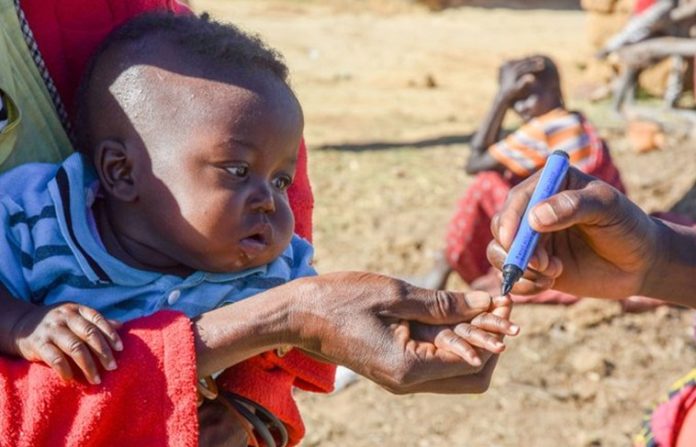New Delhi (NVI): Just weeks after the World Health Organisation (WHO) declared the African continent free of the wild poliovirus, the north African country of Sudan has witnessed fresh cases of the virus.
The outbreak has been linked to the oral polio vaccine that uses a weakened form of the virus, making it a case of vaccine-derived polio, reports The Guardian.
The fresh outbreak comes even as WHO had noted that a strain of the virus was circulating in Chad last year and had a high risk of spreading to other parts of the Horn of Africa.
The global health body, in a statement on the new cases, said that two children in Sudan, one from South Darfur state and the other from Gadarif state, close to the border with Ethiopia and Eritrea, were paralysed in March and April. Both had been recently vaccinated against polio.
Initial outbreak investigations showed the cases were linked to a continuing vaccine-derived outbreak in Chad that was first detected last year and is now spreading in Chad and Cameroon, The Guardian reported.
On August 25, the WHO certified the total eradication of poliomyelitis in Africa, after decades of work by a coalition of international health bodies, national and local governments, community volunteers and survivors.
Following the announcement, Pakistan and Afghanistan remain the only two countries where polio is still endemic.
However, the fresh outbreak has raised concerns over the spread of disease by the vaccine itself.
The oral polio vaccine, which is preferred in some places because of its ease of delivery and the lack of need for sterile syringes, uses a weakened version of polio.
When a child receives the oral vaccine, the weakened virus replicates in the intestine, encouraging the production of antibodies, and can be present in excreta. In an area where there are high enough levels of immunity in the population, this usually does not present a problem, even if sanitation is poor.
But in areas where there is both poor sanitation and a lack of general immunisation the virus can survive and circulate for months, mutating over time until it poses the same risk of paralysis-causing disease as wild polio.
In the past also, since WHO launched the Polio eradication campaign in 1988, the outbreaks of polio caused by the vaccine have been rationalised as “collateral damage,” writes Thomas Abraham, a journalist and author in his book ‘Polio: The Odyssey of Eradication’.
-ARK








